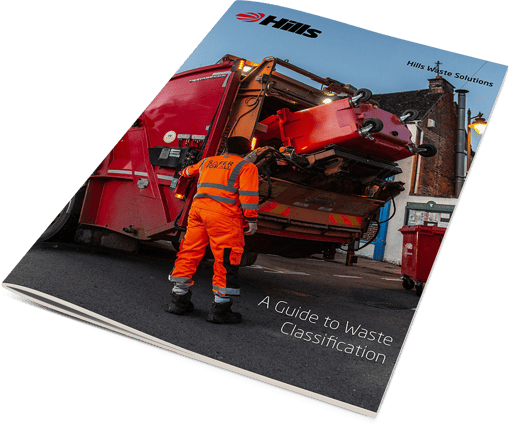
General waste collection
Professional disposal service for your commercial general waste
CREATE YOUR ONLINE QUOTE NOW
Switch to Hills Waste Solutions in under 10 minutes
- 97% service reliability
- 4,000 businesses in our community
Responsible waste disposal
No matter the size of your organisation, after you’ve separated and recycled everything possible, there’s always some leftover waste that needs a reliable collection service. We understand that managing general waste and residual waste is one of society’s greatest challenges, which is why we’re committed to sustainable solutions. We invest in new facilities and technologies to maximise recycling and recovery, including turning non-recyclable materials into fuel using renewable energy plants. We offer commercial general waste collection services across the South West of England, handling any volume of waste.
Locations served
- Amesbury
- Andover
- Bath
- Bristol
- Cirencester
- Chippenham
- Devizes
- Faringdon
- Frome
- Malmesbury
- Marlborough
- Newbury
- Portishead
- Salisbury
- Shaftesbury
- Swindon
- Trowbridge
- Tidworth
- Warminster
- Weston-Super-Mare
- Yate
What is general waste?
General waste, also known as trade or commercial waste, refers to non-recyclable waste that cannot be sorted for reuse or recycling. Proper segregation of waste is crucial to ensure we can recover and recycle as much as possible. Here’s what can go in our general waste collections:
- Black bag waste
- Lightweight and compactable waste
- Non-recyclable materials
- Non-hazardous waste
Suitable containers
What we do with it
Recoverable waste is sorted, dried, shredded and baled
Waste is transferred to an ‘energy from waste’ facility
Energy is sent back to the grid to power local homes
Frequently asked questions
-
What Cannot Be Included in General Waste?
While general waste covers a broad range of items, certain types of waste are excluded:
- Fridges and freezers
- Waste and Electrical and Electronic Equipment (WEEE)
- Asbestos
- Tyres
- Batteries
- Fluorescent tubes
- Paints (including residue in paint tins)
- Aerosols and gas canisters
- Oil
- Liquids
- Contaminated soil
- Plasterboard
- Segregated food waste
- Upholstered furniture
- Mattresses (extra cost)
Though these items are not considered general waste, we can still manage their disposal. For assistance, contact our Customer Support Team at 0808 145 4533 (08.30 - 17.00 – Monday to Friday).
-
How Is General Waste Disposed Of?
We aim to make positive use of all waste, even non-recyclable waste. Your commercial general waste is taken to a licensed disposal facility that adheres to strict regulations. It may be sent to our mechanical biological treatment (MBT) facility in Westbury or one of two local energy-from-waste (EfW) facilities. At Westbury, the waste is dried, shredded, and prepared for incineration. At the EfW plants, it’s processed and burned at high temperatures, with the resulting energy converted into electricity for the National Grid.
On the rare occasion that landfill is necessary, we ensure that gas emissions are captured and used as a power source, and any rainwater passing through the landfill is captured and cleaned before discharge. All our waste processing is rigorously audited to maintain the highest standards.
-
Can You Dispose of General Waste at the Tip?
While it’s best to segregate your waste into the appropriate recycling bins, any items that cannot be recycled or reused should be placed in your general waste bin. There are restrictions on what can be included in general waste, particularly hazardous materials. If you’re unsure whether an item qualifies as general waste, it’s your responsibility to verify this before disposal. When in doubt, consult your waste provider for guidance.
Proper segregation is essential, as general waste should only consist of non-recyclable materials that cannot be reused or processed any other way.
-
Are Electronic Goods General Waste?
Electronic goods, including white goods and other Waste Electrical and Electronic Equipment (WEEE) like computers, microwaves, and cables, should not be included in general waste. These items can harm the environment if they end up in landfill. Businesses should separate electronic goods from their non-recyclable waste and arrange for specialist collections. If you need to dispose of WEEE waste, we can organise a dedicated collection service.
Download our Waste Classification Guide
We’re here to make your life easy, so why not download our full Waste Classification Guide including detailed lists of what can and can’t be accepted for all our waste services.

.png)
.png)
.png)
.png)
.png)
.png)